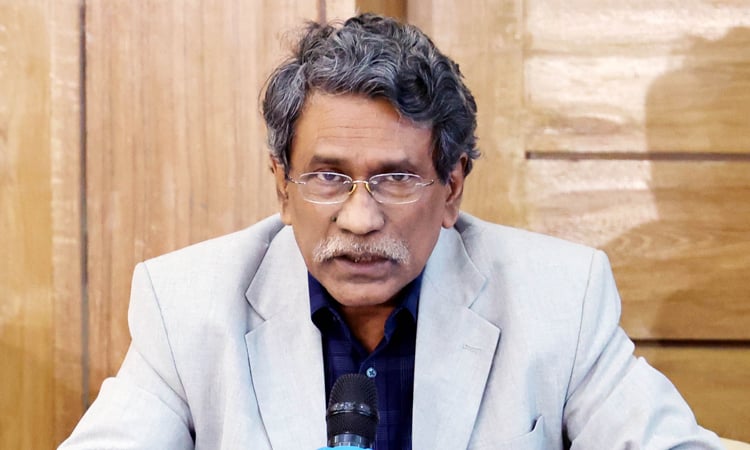News Flash
News Flash

DHAKA, July 13, 2025 (BSS) - National Consensus Commission Vice-Chairman Professor Ali Riaz today said a consensus has been reached on a proposal to include specific provisions in the existing Article 141(a) of the Constitution regarding the declaration of a state of emergency.
He revealed this while briefing media after the today’s discussion with the political parties, as it continued for 12th days in the second round of talks at the Doel Hall of Foreign Service Academy.
Ali Riaz said that the proposed changes include replacing the term “internal disturbance” in Article 141(a) with the phrases “threats to national independence, sovereignty, territorial integrity, pandemics, or natural disasters.”
Instead of requiring the countersignature of the Prime Minister, he said, the declaration of a state of emergency must receive approval from the Cabinet.
He further said that the leader of the opposition, or in their absence, the deputy leader of the opposition, must be included in the Cabinet meeting concerning the declaration of a state of emergency.
Moreover, during a state of emergency, subject to the provisions of Article 47A, no citizen’s right to life and the fundamental rights mentioned in Article 35 of the existing Constitution regarding trial and punishment may be curtailed.
In the discussion held on July 7, all political parties and alliances agreed on amending Article 141(a) of the Constitution and ensuring that the declaration of a state of emergency is not misused as a political tool.
Commission members Justice Md. Emdadul Haque, Dr. Iftekharuzzaman, Dr. Badiul Alam Majumdar, Safar Raj Hossain, and Dr. Md. Ayub Miah, and Chief Adviser’s Special Assistant Monir Haider were present.
Ali Riaz also revealed that the political parties and alliances reached a consensus on a proposal to clearly specify certain provisions in Article 95 of the Constitution regarding the appointment of the Chief Justice.
In this case, it has to add that the President shall appoint the most senior judge of the Appellate Division as the Chief Justice.
However, if any political party or alliance explicitly mentions in their election manifesto and receives the people’s mandate, then a provision may be added allowing the President to appoint either of the two most senior judges of the Appellate Division as Chief Justice, he added.
Ali Riaz said that provided that if any judge is undergoing an investigation under Article 96 of the Constitution due to allegations of misconduct or incapacity, he/she shall not be eligible for appointment as Chief Justice.
Representatives from 30 political parties, including the Bangladesh Nationalist Party (BNP), Bangladesh Jamaat-e-Islami, National Citizen Party (NCP), Gono Odhikar Parishad, Gonosanghati Andolon, Communist Party of Bangladesh (CPB), Biplobi Workers Party, and the Amar Bangladesh (AB) Party took part in the discussion.